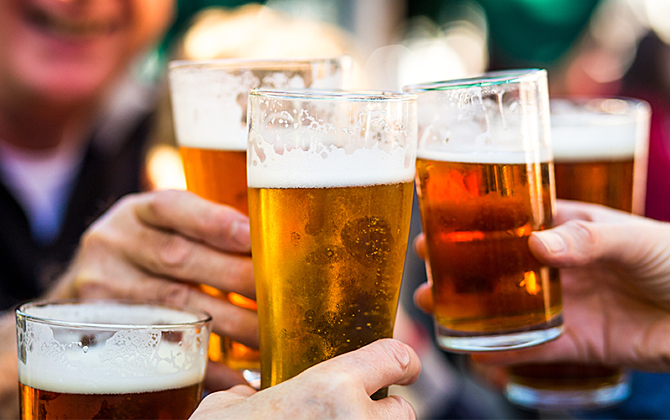Binge drinking
Our research aims to understand the impact of binge drinking on the brain, particularly in young adults.
Our research aims to understand the impact of binge drinking on the brain, particularly in young adults.

Recognising that adolescence is a critical period for brain development, we are conducting research into how excessive drinking affects the teenage brain. This research will be crucial to informing our alcohol licensing laws and public health advice.
NeuRA is examining the differences in the development of adult behaviour and thought processes of young people who binge drink compared to those who are not drinking for the period of the research.
We are also studying the size of brain regions known to be affected by alcohol to see whether brain structure is altered by binge drinking.
Our research is based on questionnaires, cognitive testing and MRI (magnetic resonance imaging).
We have found that significant binge drinking can cause significant changes in the brain chemistry of boys, causing it to become unbalanced.
Compared to non-drinkers, our research showed binge drinkers had significantly slower responses and greater errors in tests of inhibition. They also had poorer recognition of emotions on faces.

Conjoint Senior Principal Scientist, NeuRA
Every dollar of community support enables our scientists to continue making life-changing discoveries that contribute to a brighter and healthier future.
Run, swim or bake your way to making a positive difference in the lives of people touched by brain and nervous system disorders.
Stay informed about our latest research breakthroughs, scientific discoveries and the incredible minds behind them – subscribe today.
Neuroscience Research Australia respectfully acknowledges the Bidjigal and Gadigal peoples of the Eora Nation as the Traditional Owners of the Land on which we stand and pay our respects to Elders past and present.
Redevelopment of the NeuRA website has been made possible by the generous support of Conexus Financial.
